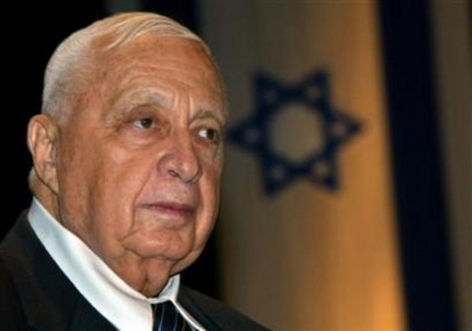Palestinian Coup
UPI International Editor Claude Salhani contends that Hamas’ taking control of Gaza by force is even more catastrophic than most observers realize.
The violent confrontation between warring Palestinian factions unfolding in Gaza is far more than a civil war. It’s a coup d’etat accompanied by a civil war. And it’s also the most serious, most nefarious chapter in the short history of the Palestinian Authority.
The heavy fighting pitting forces loyal to Palestinian President Mahmoud Abbas, aka Abu Mazen, against members of the Islamist Hamas movement, have not only revived fears of an intra-Palestinian civil war, but they have shattered the dream of the Palestinians gaining independence and ruling themselves as a sovereign nation at any time in the foreseeable future.
That strikes me as dead-on. I take some exception, however, to his assessment of the causes:
The defeat of Abu Mazen’s Fatah forces in the Gaza Strip represents much more than a defeat for the mainstream Palestinian political/military movement. The mega-fiasco in Gaza is also a defeat of U.S. foreign policy in the region; it is the culmination of a policy of inaction on the part of the Bush administration. It represents a failure of Israel’s policy vis-a-vis the Palestinian territories. After nearly 40 years of occupation Israel finds itself facing a far more hostile environment in Gaza than when they entered the territory in 1967. And possibly far more consequential in the Arab world, the resumption of fighting amongst Palestinians represents a defeat — and loss of prestige — for Saudi Arabia’s King Abdallah who tried to broker a cease-fire among the warring factions.
It’s entirely unclear that a different policy on part of the U.S. would have mattered. Israeli policy has gone from one extreme to another and back again, from the diplomacy of Ehud Barak to the bellicosity of Ariel Sharon to the unilateral concessions of Sharon to the bellicosity of Ehud Olmert. Perhaps neither approach was tried hard enough and, goodness knows, Sharon incited much bitterness.
Regardless of the Israeli position, however, the Palestinian situation remained essentially static. Once Fatah, whether under the late Yasir Arafat or his successor Abbas, decided that outwardly supporting terrorism and the destruction of Israel was no longer productive, more militant factions, especially Hamas, became stronger. The Fatah government was unable and/or unwilling to control terrorist violence against Iraeli positions and the Israeli governments alternately overreacted and tried to buy peace through appeasement. Either way, the terrorists won.
If George W. Bush’s foreign policy toward the peace process were a combination Woodrow Wilson and Jimmy Carter (and some of us have argued that, in Iraq at least, it actually is) it’s hard to see that it would have changed any of that. It’s a conceit of American international relations to think that the only thing that matters is how much our president cares.






Bush has been thoughtful enough to provide a splendid recruiting/training ground for Islamic militants in Iraq. I doubt that Fatah presented much of a problem for militants who have fought the US Army and lived to tell about it.
Unfortunately, this is probably just the beginning of a trend with tougher, more radical Islamic fighters going on the offensive in the middle east.
There can be little doubt that Bin Laden has a smile on his face…
… or that some people can’t find their ass with both hands. Nonetheless, anything short of a happpy land where rivers of chocolate run freely and children fly kites is our fault. That’s just the way it is.
Charles…
Do try to depart from GOP talking points once and a while. When someone criticizes US policy or the Bush admin, it does not mean they are saying “its all our fault”.
Actually, the problems in the middle east have a lot to do with the breakup of the Ottoman Empire and subsequent blundering by the British.
Nonetheless, mistakes have consequences, and a huge mistake like the war in Iraq can have huge consequences.
To be honest I can’t find anything about chocolate rivers or finding rear ends in my Republican speaking manual. It appears Charles words are his own and very appropriate. I’m tired of all this “GOP talking points” nonsense. Just because we disagree with some doesn’t mean we are employed by the Bush machine. Jeesh.
It’s not surprising a culture that takes offense at the most minor of things, teaches it’s children hatred, and resorts to violence for worldwide political gain, ends up using violence to solve it’s internal political problems. It’s is their own fault. Not the USA’s fault. Not Israel’s fault. It’s their fault for being backward savages who base their lives on hate and killing.
There are many parts of the old Ottoman empire that are not this stupid and medieval. These sorry excuses for humans need to grow up and act like the rest of the civilized world.
Steve,
You mean civilized like we were going in and bombing Iraq and killing a bunch of folks who did not do a damned thing to us? Or civilized like we were killing what, a million people in Vietnam who did not do a damned thing to us? You mean that kind of civilized?
Anjin-San,
With due respect, I see the US war in Vietnam as a legitimate attempt to halt the spread of communism (which proved itself to be deadly to much of the world). Sure we made mistakes but war is like that, you make mistakes.
Iraq was in violation of UN accords, likely working on WMD’s and killing it’s people. Again, we have made mistakes but our intentions have been civilized and our execution of the war civilized.
Rather than point out we are not perfect I would like to hear a defense of what’s going on in Gaza, if there is one.